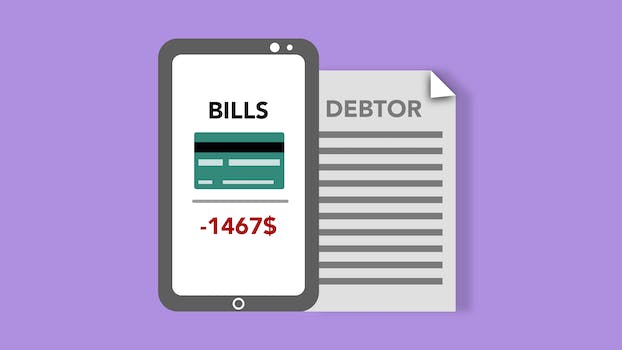How To Save Money As A Kid Answer Key
“Unlock the secrets to financial freedom with our How To Save Money As A Kid Answer Key.”
Introduction
The How To Save Money As A Kid Answer Key provides helpful tips and strategies for children to learn how to manage their finances and save money. By following these guidelines, kids can develop good money habits that will benefit them throughout their lives. This answer key serves as a valuable resource for parents and educators who want to teach children about financial responsibility.
10 Simple Ways to Save Money as a Kid
As a kid, it can be tough to save money. With so many tempting toys and treats, it’s easy to spend all your pocket money in one go. However, saving money is an important skill to learn, and it can set you up for a lifetime of financial success. Here are 10 simple ways to save money as a kid.
1. Set a savings goal
The first step to saving money is to set a goal. Think about what you want to save for, whether it’s a new toy, a trip to the movies, or a bigger purchase like a bike. Once you have a goal in mind, you’ll be more motivated to save.
2. Keep track of your spending
To save money, you need to know where your money is going. Keep track of your spending by writing down everything you buy. This will help you identify areas where you can cut back and save more.
3. Make a budget
A budget is a plan for how you will spend your money. It’s important to make a budget and stick to it if you want to save money. Start by listing your income (such as pocket money or allowance) and your expenses (such as snacks or toys). Then, look for ways to reduce your expenses and save more.
4. Look for deals and discounts
Before you buy something, look for deals and discounts. Check online for coupons or promo codes, or look for sales at your favorite stores. You can also ask your parents if they have any coupons or discounts they can share with you.
5. Avoid impulse buys
Impulse buys are purchases you make on a whim, without really thinking about whether you need or want the item. To save money, try to avoid impulse buys. Before you buy something, ask yourself if you really need it or if you can wait until later.
6. Save your change
Saving your change can add up over time. Whenever you get change back from a purchase, put it in a jar or piggy bank. You’ll be surprised how quickly it adds up.
7. Do chores for extra money
If you want to save more money, consider doing chores for extra cash. Offer to do chores around the house, like washing dishes or mowing the lawn, in exchange for a small payment. You can also offer to do odd jobs for neighbors or family friends.
8. Sell items you no longer need
If you have toys or clothes that you no longer use or wear, consider selling them. You can have a garage sale, sell items online, or take them to a consignment shop. Not only will you make some extra money, but you’ll also declutter your space.
9. Pack your own lunch
Buying lunch at school can be expensive. To save money, pack your own lunch instead. You can make sandwiches, pack fruit and veggies, and bring a reusable water bottle. Not only will you save money, but you’ll also be eating healthier.
10. Wait for sales
If there’s something you really want to buy, wait for a sale. Many stores have sales throughout the year, especially around holidays like Christmas and Easter. By waiting for a sale, you can save money and still get what you want.
Saving money as a kid may seem difficult, but it’s an important skill to learn. By setting goals, making a budget, and looking for ways to save, you can start building good financial habits that will last a lifetime.
The Importance of Budgeting for Kids: Tips and Tricks
As a kid, it can be tough to save money. With so many tempting toys and treats, it’s easy to spend all your pocket money in one go. However, learning how to budget and save money is an important skill that will serve you well throughout your life. In this article, we’ll explore some tips and tricks for saving money as a kid.
Firstly, it’s important to set a budget. This means deciding how much money you have to spend each week or month, and sticking to it. To do this, you’ll need to work out your income (such as pocket money or money earned from chores) and your expenses (such as snacks or toys). Once you know how much money you have left over, you can decide how much to save and how much to spend.
One way to make budgeting fun is to use a savings jar. This can be a jar or container that you decorate yourself, and use to save up for something special. For example, you might want to save up for a new video game or a day out with your friends. Every time you receive pocket money or earn some extra cash, you can add it to the jar. Seeing the jar fill up over time can be a great motivator to keep saving.
Another tip for saving money is to avoid impulse purchases. This means not buying something just because it looks cool or because your friends have it. Instead, take some time to think about whether you really need or want the item. You might find that after a few days, you’ve lost interest in it anyway. If you do decide to buy something, try to find the best deal possible. This might mean shopping around or waiting for a sale.
One way to save money on snacks and treats is to make your own. For example, you could bake some cookies or make your own popcorn instead of buying pre-packaged snacks. Not only is this cheaper, but it can also be healthier and more fun. You could even invite your friends over to help you make snacks, and then enjoy them together.
Finally, it’s important to remember that saving money doesn’t mean you can’t have fun. There are plenty of free or low-cost activities that you can enjoy with your friends and family. For example, you could go for a bike ride, have a picnic in the park, or play board games at home. By finding ways to have fun without spending a lot of money, you’ll be able to save more for the things that really matter to you.
In conclusion, learning how to budget and save money is an important skill for kids. By setting a budget, using a savings jar, avoiding impulse purchases, making your own snacks, and finding low-cost activities, you can save money while still having fun. Remember, the key is to be patient and consistent. Saving money takes time, but it’s worth it in the end. Good luck!
How to Make Money as a Kid: Creative Ideas for Earning Extra Cash
Are you a kid looking to earn some extra cash? Maybe you want to save up for a new toy or game, or maybe you just want to start building your savings. Whatever your reason, there are plenty of creative ways for kids to make money. Here are some ideas to get you started.
1. Babysitting
If you’re responsible and enjoy spending time with younger kids, babysitting can be a great way to earn money. Ask your parents or other adults you know if they know anyone who needs a babysitter. You can also advertise your services on social media or in your neighborhood.
2. Pet-sitting
Do you love animals? Consider offering pet-sitting services to your neighbors. You can walk dogs, feed cats, and even clean up after them. Make sure you have permission from the pet owners and that you know how to properly care for the animals.
3. Yard work
Offer to mow lawns, rake leaves, or do other yard work for your neighbors. You can charge by the hour or by the job. Make sure you have the necessary tools and equipment, and always be careful when using them.
4. Lemonade stand
A classic way for kids to make money is by setting up a lemonade stand. Make sure you have permission from your parents and that you follow any local laws or regulations. You can also sell other snacks or treats to increase your profits.
5. Crafts
If you’re creative, consider making and selling crafts. You can sell them online or at local craft fairs. Some ideas include jewelry, paintings, or homemade soap.
6. Recycling
Collect cans and bottles and take them to a recycling center. You can earn money for each item you recycle. Make sure you have permission from your parents and that you follow any local laws or regulations.
7. Car washing
Offer to wash cars for your neighbors. You can charge by the hour or by the car. Make sure you have the necessary supplies and that you’re careful not to damage any cars.
8. Tutoring
If you’re good at a particular subject, consider offering tutoring services to other kids. You can charge by the hour or by the session. Make sure you have a good understanding of the subject and that you’re patient and helpful.
9. Online surveys
Some websites offer paid surveys for kids. You can earn money by answering questions about products or services. Make sure you have permission from your parents and that you’re using a reputable website.
10. Odd jobs
Offer to do odd jobs for your neighbors, such as cleaning out a garage or organizing a closet. You can charge by the hour or by the job. Make sure you’re capable of completing the job and that you’re being paid fairly.
Remember, when you’re making money as a kid, it’s important to be responsible and safe. Always have permission from your parents and make sure you’re following any local laws or regulations. With a little creativity and hard work, you can start earning extra cash in no time!
Saving for a Big Purchase: Strategies for Kids
As a kid, it can be tough to save money. With so many tempting toys and treats, it’s easy to spend all your allowance or birthday money in one go. But if you’re saving up for a big purchase, like a new bike or a video game console, it’s important to have a plan. Here are some strategies for kids to save money and reach their goals.
First, set a goal. Decide what you want to save up for and how much it will cost. This will give you a clear target to work towards. You can even make a chart or a graph to track your progress. Seeing how much you’ve saved so far can be motivating and help you stay on track.
Next, make a budget. Figure out how much money you have coming in (like allowance or money from doing chores) and how much you’re spending. Look for ways to cut back on unnecessary expenses, like buying snacks at the corner store or getting a fancy coffee drink. Every dollar you save can go towards your goal.
Another way to save money is to look for deals and discounts. Check out sales at your favorite stores or look for coupons online. You can also try buying used items instead of new ones. For example, if you’re saving up for a video game console, see if you can find a used one in good condition for a lower price.
If you’re really serious about saving money, consider starting a side hustle. This could be anything from mowing lawns to selling handmade crafts. Use your skills and interests to come up with a business idea that you can do on the weekends or after school. Not only will you earn extra money, but you’ll also learn valuable skills like budgeting and marketing.
Finally, don’t forget about the power of patience. Saving up for a big purchase takes time, but it’s worth it in the end. Instead of buying something impulsively, think about how much more satisfying it will be to save up and buy it with your own hard-earned money. Plus, waiting a little longer might give you time to find an even better deal or to decide if you really want the item after all.
In conclusion, saving money as a kid can be challenging, but it’s not impossible. By setting a goal, making a budget, looking for deals, starting a side hustle, and being patient, you can save up for a big purchase and feel proud of your accomplishment. Remember, every dollar counts, so don’t be afraid to make small changes to your spending habits. With a little effort and determination, you can reach your savings goal and enjoy the satisfaction of buying something you really want.
Teaching Kids the Value of Money: Lessons and Activities
As a kid, it can be tough to understand the value of money. You might think that money grows on trees or that it’s something that your parents will always provide for you. However, it’s important to learn how to save money from a young age so that you can develop good financial habits that will last a lifetime.
One of the best ways to save money as a kid is to start by setting a goal. Think about something that you really want, like a new toy or a video game, and then figure out how much money you need to save in order to buy it. Once you have a goal in mind, you’ll be more motivated to save your money instead of spending it on things that you don’t really need.
Another great way to save money is to create a budget. This might sound like something that only adults do, but it’s actually a really useful tool for kids too. Start by writing down all of your expenses, like snacks or toys, and then figure out how much money you have left over. You can then decide how much money you want to save each week or month and put it into a savings account.
Speaking of savings accounts, opening one is a great way to save money as a kid. Many banks offer special savings accounts for kids that have low minimum balances and no fees. You can even earn interest on the money that you save, which means that your money will grow over time. Plus, having a savings account will help you keep track of your money and make it easier to resist the temptation to spend it all at once.
If you’re looking for ways to earn some extra money, there are plenty of options available to kids. You could start a lemonade stand or sell homemade crafts to your friends and family. You could also offer to do chores for your neighbors, like mowing their lawn or walking their dog. Just be sure to save the money that you earn instead of spending it right away.
Finally, it’s important to remember that saving money doesn’t mean that you can’t have fun. There are plenty of free or low-cost activities that you can do with your friends and family, like going for a hike or having a picnic in the park. By finding ways to have fun without spending a lot of money, you’ll be able to save more money in the long run.
In conclusion, learning how to save money as a kid is an important skill that will serve you well throughout your life. By setting goals, creating a budget, opening a savings account, earning extra money, and finding low-cost activities, you’ll be well on your way to developing good financial habits that will last a lifetime. So start saving today and watch your money grow!
Avoiding Impulse Buys: Tips for Kids
As a kid, it can be tough to resist the urge to buy every shiny new toy or gadget that catches your eye. But learning to avoid impulse buys is an important skill that will serve you well throughout your life. Not only will it help you save money, but it will also teach you to be more mindful of your spending habits. Here are some tips to help you avoid impulse buys and save money as a kid.
1. Make a list
Before you go shopping, make a list of the things you need to buy. This will help you stay focused and avoid getting distracted by things you don’t really need. Stick to your list as much as possible, and only deviate from it if you come across something that you absolutely need or have been saving up for.
2. Set a budget
It’s important to have a budget when you’re shopping, especially if you’re prone to impulse buys. Decide how much money you can afford to spend before you go shopping, and stick to that budget. If you see something you really want but it’s outside of your budget, resist the urge to buy it. Remember, there will always be other opportunities to buy things in the future.
3. Wait it out
If you see something you really want but you’re not sure if you should buy it, wait a few days before making a decision. This will give you time to think about whether or not you really need the item, and whether or not it’s worth the money. If you still want it after a few days, then you can consider buying it. But if you’ve forgotten about it or lost interest, then you’ll be glad you didn’t waste your money on something you didn’t really need.
4. Avoid shopping when you’re bored or emotional
Shopping can be a fun way to pass the time, but it’s not a good idea to go shopping when you’re feeling bored or emotional. When you’re bored or emotional, you’re more likely to make impulse buys and spend money on things you don’t really need. Instead, find other ways to occupy your time or deal with your emotions, such as reading a book, going for a walk, or talking to a friend.
5. Think about the long-term
When you’re considering buying something, think about how much use you’ll get out of it in the long-term. Will you still be using it a year from now? Five years from now? If not, then it might not be worth the money. On the other hand, if it’s something that you’ll use regularly and get a lot of enjoyment out of, then it might be worth the investment.
By following these tips, you can learn to avoid impulse buys and save money as a kid. Remember, it’s important to be mindful of your spending habits and to think about the long-term when making purchasing decisions. With a little bit of practice, you’ll be well on your way to becoming a savvy shopper and a responsible spender.
Saving for the Future: Retirement Planning for Kids
As a kid, it may seem like saving money is impossible. After all, you don’t have a steady income and your expenses are limited to things like toys and candy. However, it’s never too early to start thinking about your financial future. By learning how to save money now, you can set yourself up for a comfortable retirement down the line.
The first step to saving money as a kid is to understand the value of money. This means learning about things like budgeting, saving, and investing. You can start by setting a savings goal for yourself. Maybe you want to save up for a new video game or a trip to the movies. Whatever your goal is, make sure it’s something that you really want and that you’re willing to work towards.
Once you have a savings goal in mind, it’s time to start budgeting. This means figuring out how much money you have coming in (allowance, birthday money, etc.) and how much you’re spending. You can use a simple spreadsheet or a budgeting app to help you keep track of your money. Make sure to include all of your expenses, even the small ones like snacks and drinks.
Once you know how much money you have coming in and going out, you can start looking for ways to save. This might mean cutting back on unnecessary expenses like buying snacks at school or skipping a trip to the movies. You can also look for ways to earn extra money, like doing chores for your parents or selling items you no longer need.
Another way to save money as a kid is to start investing. This might sound intimidating, but it’s actually easier than you think. You can start by opening a savings account at your local bank or credit union. This will allow you to earn interest on your savings, which means your money will grow over time. You can also look into investing in stocks or mutual funds, but make sure to do your research first.
Finally, it’s important to remember that saving money is a long-term goal. It’s not something that will happen overnight, but with patience and persistence, you can achieve your savings goals. Make sure to celebrate your successes along the way, whether it’s reaching a savings milestone or sticking to your budget for a month.
In conclusion, saving money as a kid is not only possible, but it’s also a great way to set yourself up for a comfortable financial future. By learning about budgeting, saving, and investing, you can start building good financial habits that will last a lifetime. Remember to set realistic goals, track your progress, and celebrate your successes along the way. With a little bit of effort, you can become a savvy saver and investor, and set yourself up for a bright financial future.
Conclusion
Conclusion: Saving money as a kid is an important skill to learn. By setting goals, creating a budget, and finding ways to earn extra money, kids can develop good financial habits that will benefit them throughout their lives. It’s never too early to start saving, and with a little effort and discipline, kids can build a solid foundation for their financial future.







